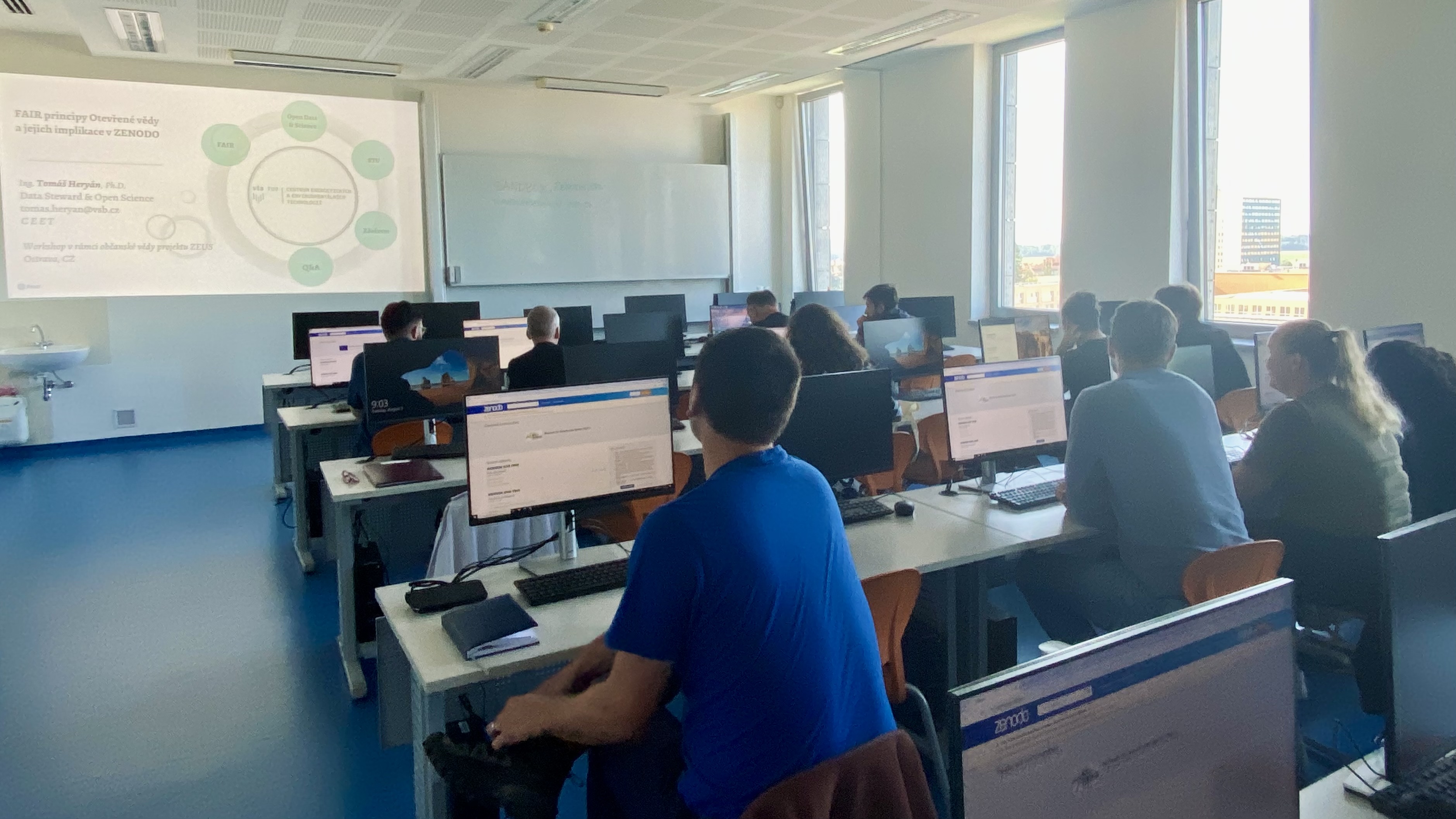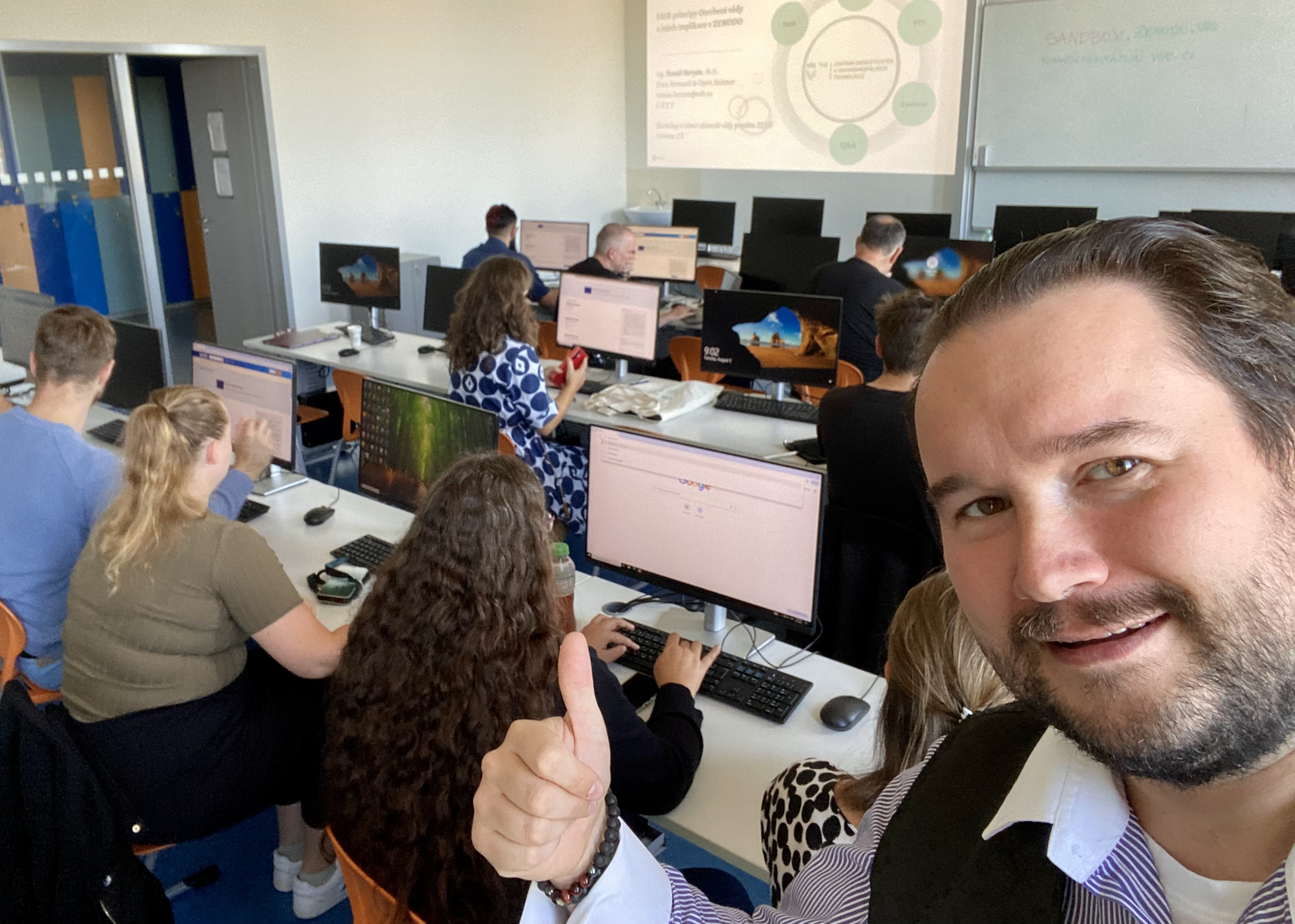Our goal was to introduce these principles to Ph.D. students and young researchers outside the project through practical demonstrations of working with data in the Zenodo repository. The activity was carried out as part of the concept of citizen science and was intended primarily for researchers and doctoral students who are not directly involved in the project but have the potential to become future co-researchers or partners in similar research activities.

Participants tried out the following on their computers:
How to properly structure and secure research data against misuse during the review process, but also how to create a clear and machine-readable ReadMe file that will enable the use of data not only by other researchers, but also by artificial intelligence-based analytical tools that will soon be available on the ZENODO platform.
Open access publishing: The discussion also focused on selecting suitable scientific journals from the DOAJ (Directory of Open Access Journals) database and on the importance of the CC BY license, which is most often required for publicly funded projects.
The green and gold routes to open access: Participants used specific examples to explain the differences between the so-called green route (storing an article in a repository) and the gold route (publishing in an open journal). Emphasis was placed on understanding the legal aspects and conditions for storing the final version of an article in an institutional or thematic repository.

The application of FAIR principles contributes to the quality of scientific work, facilitates international cooperation, and ensures that publicly funded research truly serves society as a whole—including public engagement through citizen science. We would like to thank all workshop participants for their active involvement and look forward to further joint steps toward more open and transparent science!